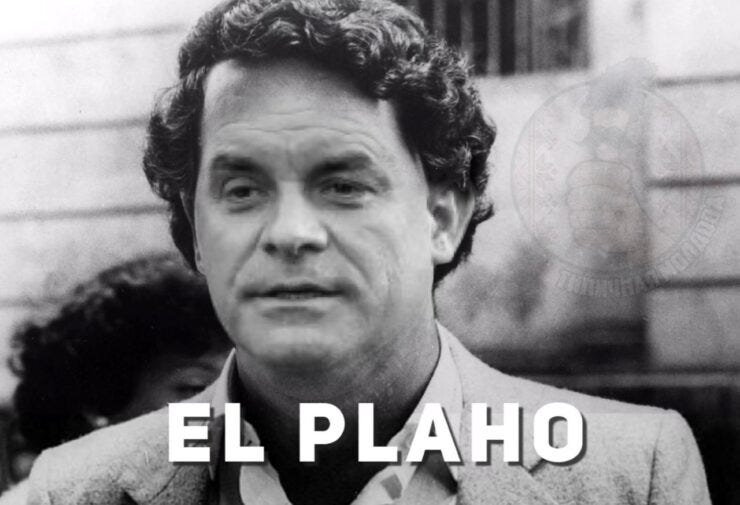Welcome back to Moldova Matters! This week the main news has been all about Ilan Shor and his political allies / cutouts in Moldova. Bashkan Gutsul has been jailed following her detention by anti-corruption officers at the airport. Also, Moldova alleges that the Russian Embassy aided at least one of the two Shor-linked MPs who have vanished before they could be remanded into custody and serve 6 and 12 year prison sentences respectively. We covered all of this and more in yesterday’s article:
Today we’re going to catch up on the other top stories of the week in a short Weekly Roundup.
Balancing Hybrid Warfare and Questions of Media and Speech
Over the past few weeks initiatives from the government and parliament, as well as the activities of regulatory agencies, have caused controversy and debate about what limits can be placed on the media or speech. Here’s a roundup of the recent stories:
PAS withdraws amendment that threatened fines for spreading fake information online. MP Igor Chiriac, author of the proposed amendments, withdrew the bill saying that he was "taking into account the public reaction and concerns expressed in the public space." Under the proposal, individuals or legal entities could have been fined for disseminating “false or misleading information, the falsity of which can be verified” online. Critics of the bill included journalistic associations as well as human rights organizations who called on parliament to withdraw the bill citing contradictory language, lack of clarity and a general threat to free expression. Opposition to this bill had been building for some time and the decision of PAS to withdraw it likely headed off more public confrontations with media as well as civil society groups.
Television Channel TVC21 lost its license for 60 days. The decision was made by the “Council for the Promotion of Investment Projects of National Importance within the Government1” which is the agency tasked with policing media ownership laws following the end of the State of Emergency that was called following the invasion of Ukraine. Government spokesman Daniel Vodă explained that the issue with TVC21 is administrative and that there are questions about who the current ultimate owners of the station are. Once these questions are clarified the station will resume broadcasting. The Center for Independent Journalism and 5 co-signatories wrote a letter protesting the license banning saying that the entire mechanism for revoking the license is a danger to free speech because it did not involve a court order. They called on the government to reverse direction and to update the law passed in 2023 granting the “Council for the Promotion of Investment Projects of National Importance within the Government” this power without judicial review. Presenters from TVC21 say that the real aim is to "restrict freedom of speech in the country” and suggest that the government is lashing out at political rivals. While seeking a resolution, the station will continue to operate via online streaming.
The government has tentatively approved a Russian-language state news channel. The government’s decision recognized the importance of creating a Russian language station to combat disinformation. At the same time they note uncertainties around financial resources to run the station and recommended continued consultations with relevant agencies. The proposals also envision an overall reduction of mandatory Romanian language content from 80% of broadcast content to 70% and a requirement to adding Romanian subtitles on programs in minority languages. If the bill gets final approval from the government it will move to parliament for consideration.
Meanwhile in Transnistria…
While Moldova struggles to balance free speech and press with the onslaught of Russian propaganda, Tiraspol works hard to ban journalists outright. The “Supreme Soviet” in Tiraspol passed a law this week introducing fines for any journalists reporting from the region without prior accreditation. This applies to both representatives of media organizations and freelancers. In practice, the Transnistrian “authorities” have a long history of denying official requests for accreditation and of restricting access of those they have accredited. While the fines are not very high - 160 lei for individuals ($9) they do send a pretty clear message that the region does not welcome the press.
The Internet Reacts to “El Plaho”
The news that fugitive oligarch Vladimir Plahotniuc (aka “Plaha2”) has a Mexican passport has continued to develop this week. ZdG has reported that Plahotniuc obtained a Mexican passport in 2024 under the name “Vito Perez Gonzalez.” The document was issued by mail and sent to an address in Dubai for receipt by a Russian woman named Irina Ustina. Mexican authorities have not responded to requests for clarification but ZdG, working with Mexican journalists, has discovered multiple indications that the passport is a fake. Notably, Plahotniuc made himself 10 years younger in this passport and both the name and ID number do not show up in various Mexican databases. Mexican journalists also note that “Vito” is a “strange” name not commonly found in Mexico.
Plahotniuc has previously been reported to have a Romanian passport under the name Vlad Ulinici and a Russian passport under the name Vladislav Novak.
Lucian Rogac, lawyer for the fugitive oligarch, claimed that ZdG’s reporting "aims to discredit Mr. Plahotniuc's image" and referred all questions about the passport to the Mexican authorities.
The news of the new identity and passport has created an explosion of memes and jokes across the Moldovan internet, including the new nickname “El Plaho.”
Transnistria’s Heavy Industry is Operating Again (Probably?)
Residents of Rezina have reported seeing white smoke coming from the chimneys of the Moldovan Metallurgical Plant (MMZ) and Ribnita Cement Plant.

This is significant because under the terms of the deal between Moldova and Transnistria on the transit of natural gas to the region it had been understood that any attempts to relaunch heavy industry would be met with taxes and sanctions. Recent statements from the government have demurred on whether or not the factories are running and the head of the EU Delegation in Moldova, Jānis Mazēiks, said that he visited the plants and they weren’t running.
Adding an additional layer of confusion, the government has not clarified what conditions they put on the running of heavy industry and what consequences might occur. Previously, Prime Minister Recean had stated that taxes would be leveled against Transnistrian industry if it restarted in order to ensure level competition (given the free gas deliveries). Now the government is saying that taxes will only be applied if these enterprises deliver goods to Moldova where they would be directly competing with local companies.
When asked to clarify, Prime Minister Recean further muddied the waters by linking the question with Russia’s decision this week to ban all Moldovan road freight carriers (including transit) from Russia. He stated:
"Yes, we are right to worry and ask ourselves questions about the situation in the Transnistrian region. It is good that we have such discussions. At the same time, it is good to ask ourselves whether we are not entering into the game of division that someone from the outside is trying to impose on us. Especially when there are no ideal decisions. While we are arguing among ourselves whether or not smoke is coming out of Ribnita, Russia is economically hitting the Republic of Moldova, (…)
115 carriers were blocked, symbolically, on the same day that, a few years ago, Russia embargoed wines, fruits, vegetables, canned goods and destroyed Moldovan companies. Bankrupted enterprises, unemployed people, losses in the economy – this is the goal of a state that wants to bring us to our knees and create a conflict between us, in our own home. To argue over the banks of the Nistru. To argue among ourselves.
While it appears that the government hopes to park the Transnistria question by looking the other way, commentators on social media have been outraged that they can’t give a direct answer about the factory’s operations.
Meanwhile, Tiraspol announced that they would continue raising electricity prices on the population from April 1st. They claim that the increase is due to reduced supply, though it coincides with the restart of at least some heavy industry.
Around 2000 people work at the MMZ plant along with another 650 at the Cement Plant.
The one time you really want an acronym they haven’t chosen to establish one officially…
During the time of state capture “Plaha” became a derogatory name for Plahotniuc and more broadly the regime that he ran in Moldova. We often use Plahotniuc and Plaha interchangeably to refer to the oligarch and autocrat at Moldova Matters.



